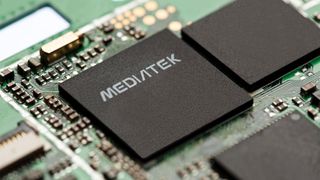
CPU benchmark manipulation is not a new controversy in the mobile industry. There have been several instances in the past, and the latest in the series is MediaTek. The Taiwanese SoC maker has been accused of sprucing up its chipset’s performance when it detects a benchmark software is being run on it.
The Allegation
AnandTech, who uncovered the fact, grew suspicious when it found oddly surprising PCMark benchmark results on the Oppo Reno 3 Pro (with a MediaTek Helio P95) and a Dimensity 1000L-powered Oppo Reno 3 (Chinese model). The Reno 3 should technically beat the Reno 3 Pro, but precisely the opposite happened. The Dimensity 1000L is a fresh MediaTek 5G chip and has far more powerful Cortex-A77 cores while the Helio P95 on the Pro model of the Reno 3 series has two-year-old Cortex-A75 cores.
It raised eyebrows from the outfit, and it dug deeper into the Reno 3 Pro’s firmware to find that the benchmark apps are tied to a “sports-mode.” This is essentially a mode that boosts CPU components like the memory controller and scheduler to improve performance momentarily. The outfit also found apparent attempts to hide the "sports mode" boost.
Further investigation revealed that this was not just limited to the Oppo Reno 3 Pro, but these tweaks were also present on devices like the Realme C3 and the Xiaomi Redmi Note 8 Pro. The outfit than used a hidden PCMark utility (which can’t be detected) on the Reno 3 Pro and found a 30% drop in scores, and in some instances, 75%.
- Google finally patches MediaTek chip flaw that affected millions of Android devices
- MediaTek Dimensity 800 will bring 5G to the mid-range
MediaTek’s response
MediaTek has responded to these allegations with a blog post titled "Why MediaTek stands behind our benchmarking practices." The gist of the response is this - "We believe in showcasing the full capabilities of a chipset in benchmarking tests is in line with the practices of other companies and gives consumers an accurate picture of device performance."
Moreover, the company said that it follows "industry standards" in this regard, and it works closely with device makers when it comes to testing. And ultimately, manufacturers have the final say as to how their devices are configured. MediaTek's response seems rather unconvincing, especially given that there were mechanisms to hide the boost.
Get daily insight, inspiration and deals in your inbox
Sign up for breaking news, reviews, opinion, top tech deals, and more.
Abdul Q is a Content editor at Techradar India. Formerly.
Most Popular


